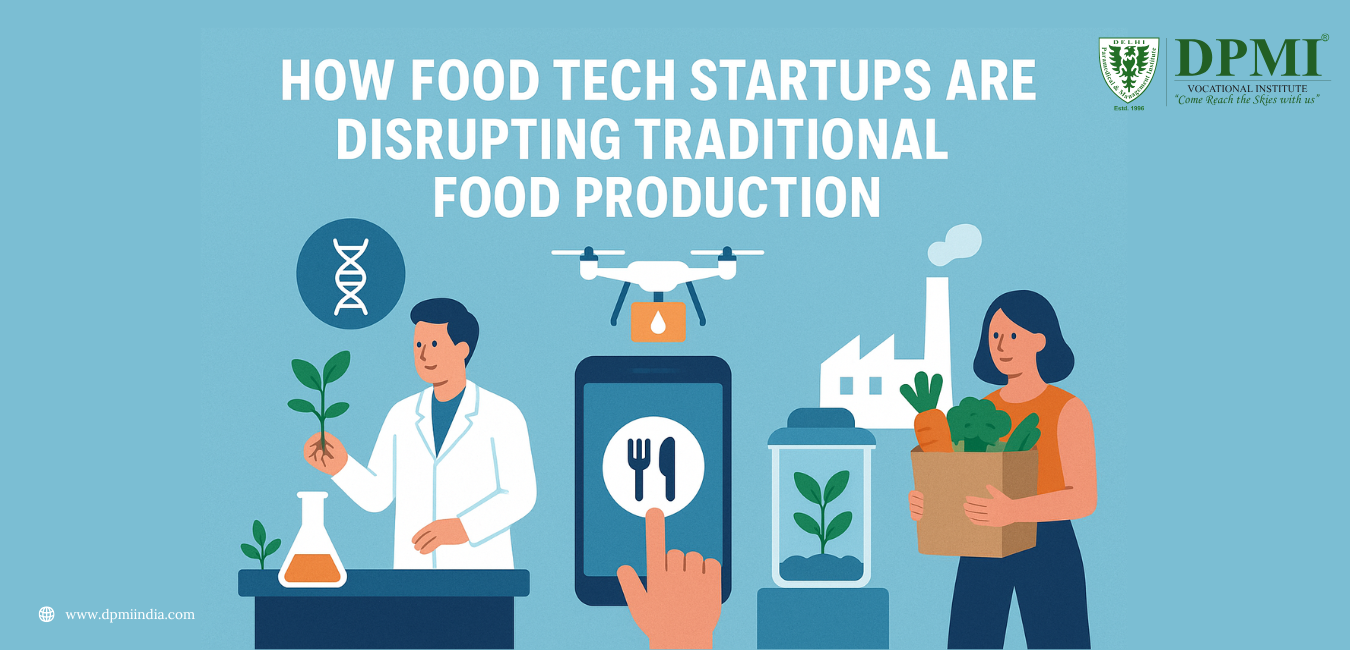September 25, 2025

In a country where agriculture has long been the backbone of our economy and culture, a silent revolution is underway — and it’s powered by food tech startups. These agile, innovation-driven companies are reshaping how we grow, process, package, and consume food. From AI-powered farms to lab-grown proteins and cloud kitchens, traditional food production is facing its biggest transformation in decades.
Let’s explore how food tech startups are challenging the status quo and what this means for the future of food.
1. From Soil to Screen: Digitising the Farm
Traditionally, farmers relied on experience, word-of-mouth, and weather forecasts. But today, startups like DeHaat, CropIn, and AgNext are empowering farmers with advanced tools like drone surveillance, AI-based crop analysis, and IoT irrigation systems.
Impact: Real-time data helps farmers monitor soil quality, pests, and weather — improving yields and reducing guesswork.
2. Alternative Proteins and Lab-Grown Innovation
With growing concerns about climate change and animal welfare, startups are introducing plant-based meats, fermentation-based dairy, and even lab-grown meat. Companies like Impossible Foods and Eat Just have inspired Indian players like GoodDot and Blue Tribe Foods.
Impact: These products offer sustainable, ethical choices without compromising on taste, while easing pressure on livestock farming.
3. Smart Food Manufacturing with AI & Robotics
Modern food factories are becoming smarter. Startups are blending AI, robotics, and predictive analytics into their systems.
For example, Simplistic (known for its automated roti-maker) uses robotics for hygiene and consistency. AI also improves quality checks by spotting defects faster than the human eye.
Impact: Automation improves quality, reduces food waste, and cuts down operational costs.
4. Disrupting Distribution: Cloud Kitchens & D2C Models
Startups like Rebel Foods, Cure-foods, and Fresh To Home are reimagining how food reaches us. Cloud kitchens cook meals without dining spaces, and D2C (Direct-to-Consumer) models eliminate middlemen.
Impact: These innovations lower delivery costs, personalise customer experience, and make food more accessible and affordable.
5. Sustainability as a Core Business Model
Startups are also tackling food waste and climate change. Companies like Loop-worm and GrubCircle turn waste into compost or animal feed. Others like Ecozen create solar-powered cold storage and energy-efficient tech.
Impact: Less food is wasted, more is locally sourced, and carbon footprints are reduced.
Challenges to Overcome
Despite the progress, there are still challenges:
• High R&D costs
• Regulatory hurdles (especially for lab-grown foods)
• Rural-urban tech gaps
• Lack of consumer awareness and trust
Still, with rising investor interest, supportive policies (like India’s FPO scheme), and a new generation of agri-tech entrepreneurs, momentum is building fast.

















